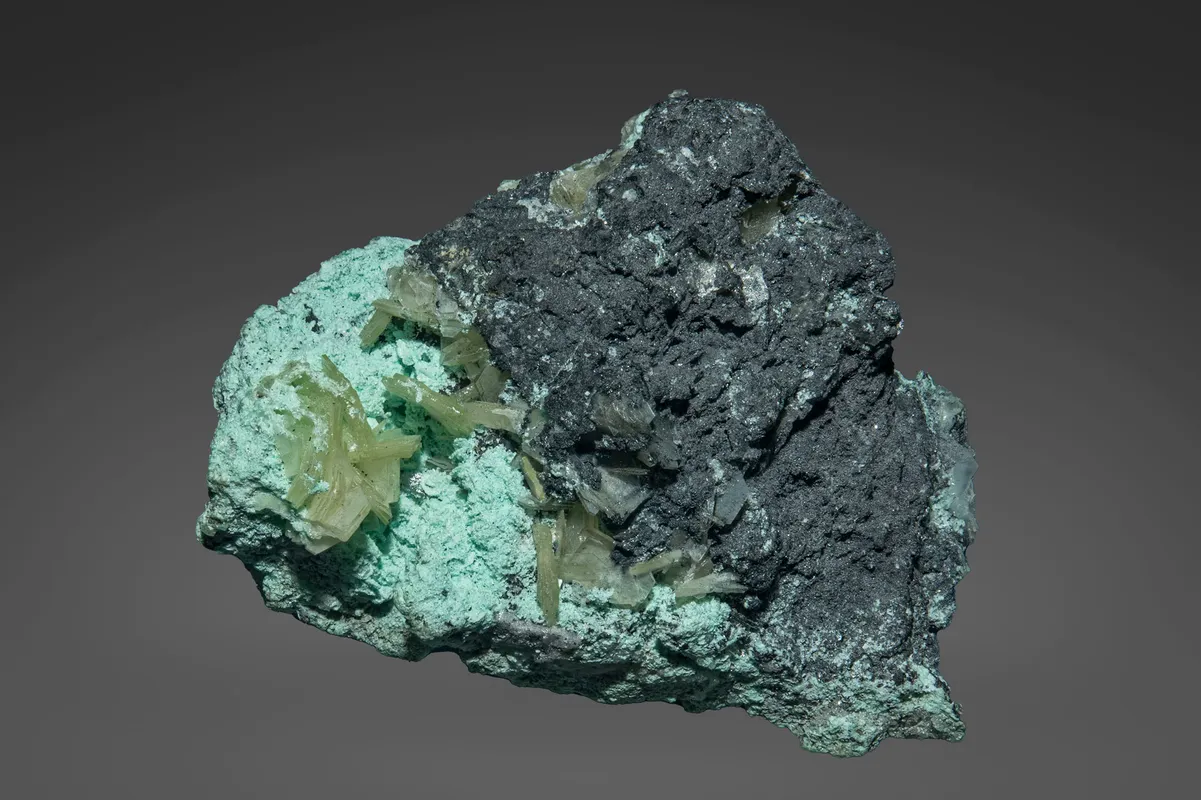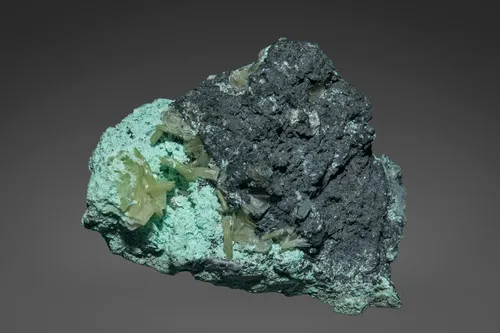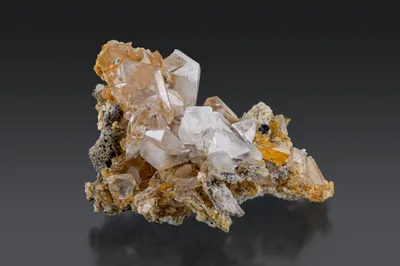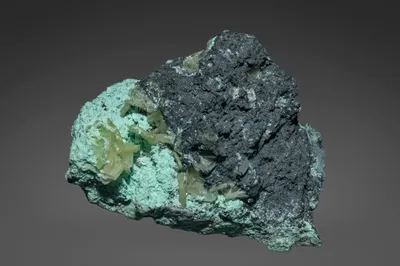
Image Credit: Malcolm Southwood
Mineral Species
Vanackerite
Type Locality
Yes
Composition
Pb4Cd(AsO4)3(Cl,OH)
Crystal System
Hexagonal
Status at Tsumeb
Confirmed (type locality)
Abundance
Extremely rare
Distribution
Second oxidation zone
Paragenesis
Supergene
Entry Number
Species; TSNB361
Type Mineralogy
The type specimen for vanackerite was collected in 1980 from the second oxidation zone by Tsumeb mineralogist John Innes, but the tabular, pale yellow hexagonal crystals that were later to be described as vanackerite were mistaken for mimetite. The specimen was later acquired by Georg Gebhard and analysed, revealing that the "mimetite" contained a substantial amount of cadmium. Vanackerite, IMA 2011-114, was described by Schlüter et al. (2015) and named for Belgian mineralogist Georges Vanacker (1923-1992) who made significant contributions in the field of systematic mineralogy. The type specimen is conserved in the Mineralogisches Museum, Universität Hamburg (catalogue number TS 706).
General Notes
Vanackerite is a cadmium-substituted derivative of mimetite. It occurs as light yellow rosettes of thin pseudohexagonal tabular crystals up to 5 mm in size on bluish green thometzekite, associated with anglesite and gypsum. Vanackerite shows orange fluorescence under ultraviolet light, with the strongest response at a wavelength of 366 nm. Crystals are tabular on {001}, with {010}, {111} and {101} also present (Schlüter et al. 2015).
A specimen of vanackerite (XRD and EMPA confirmed) in a private collection is labelled as having been collected by TCL mineralogist John Innes from the North-East Stope of 35 Level in 1980. Intriguingly, the accompanying "milky-green" arsenate on this specimen has been identified as helmutwinklerite (rather than thometzekite).
Associated Minerals
anglesite; gypsum; helmutwinklerite; thometzekite



